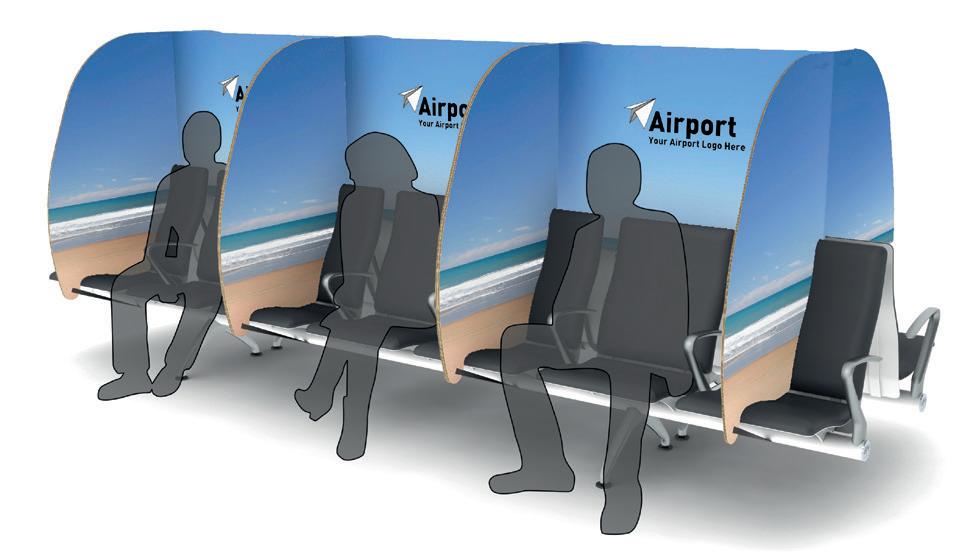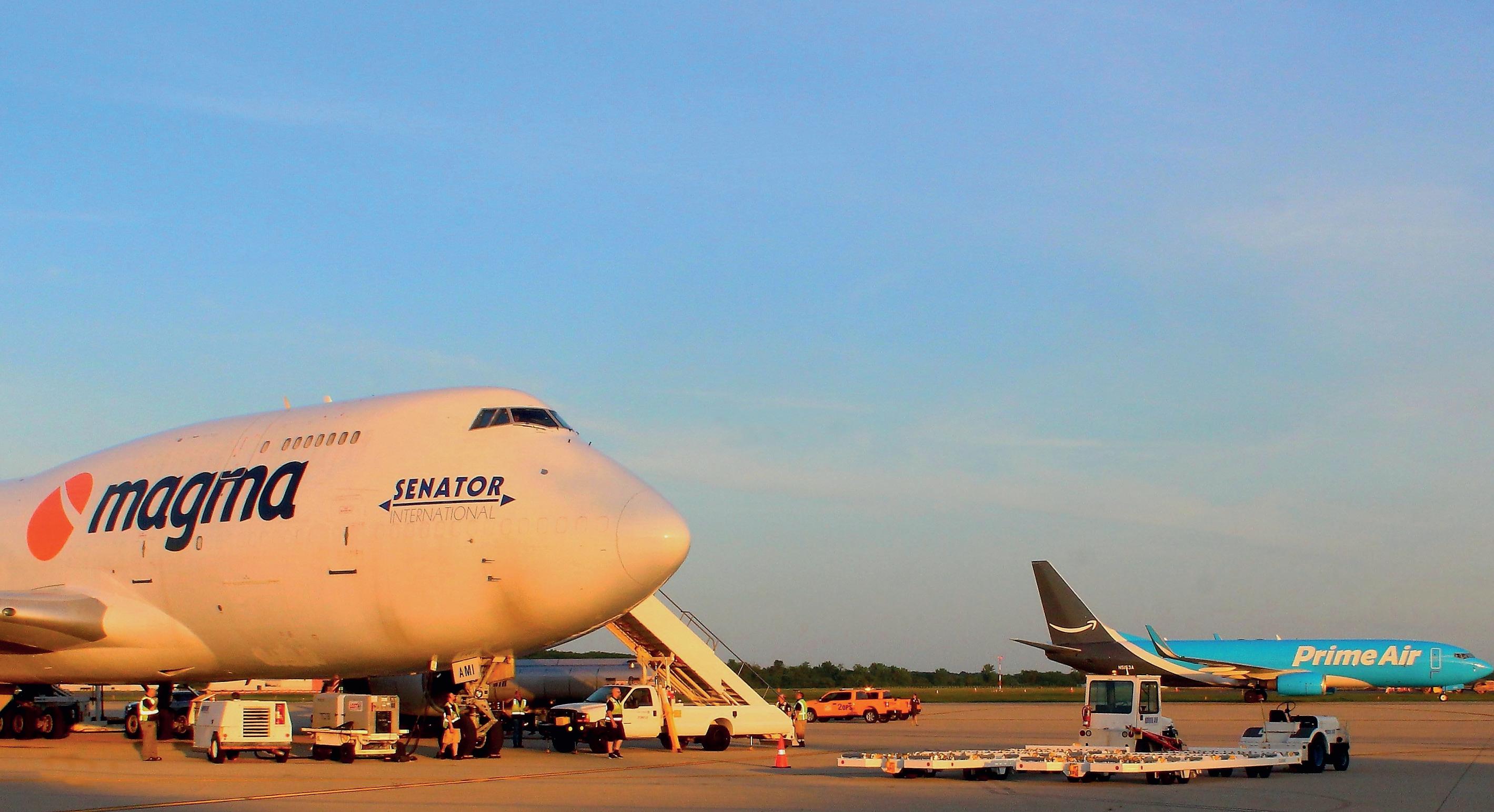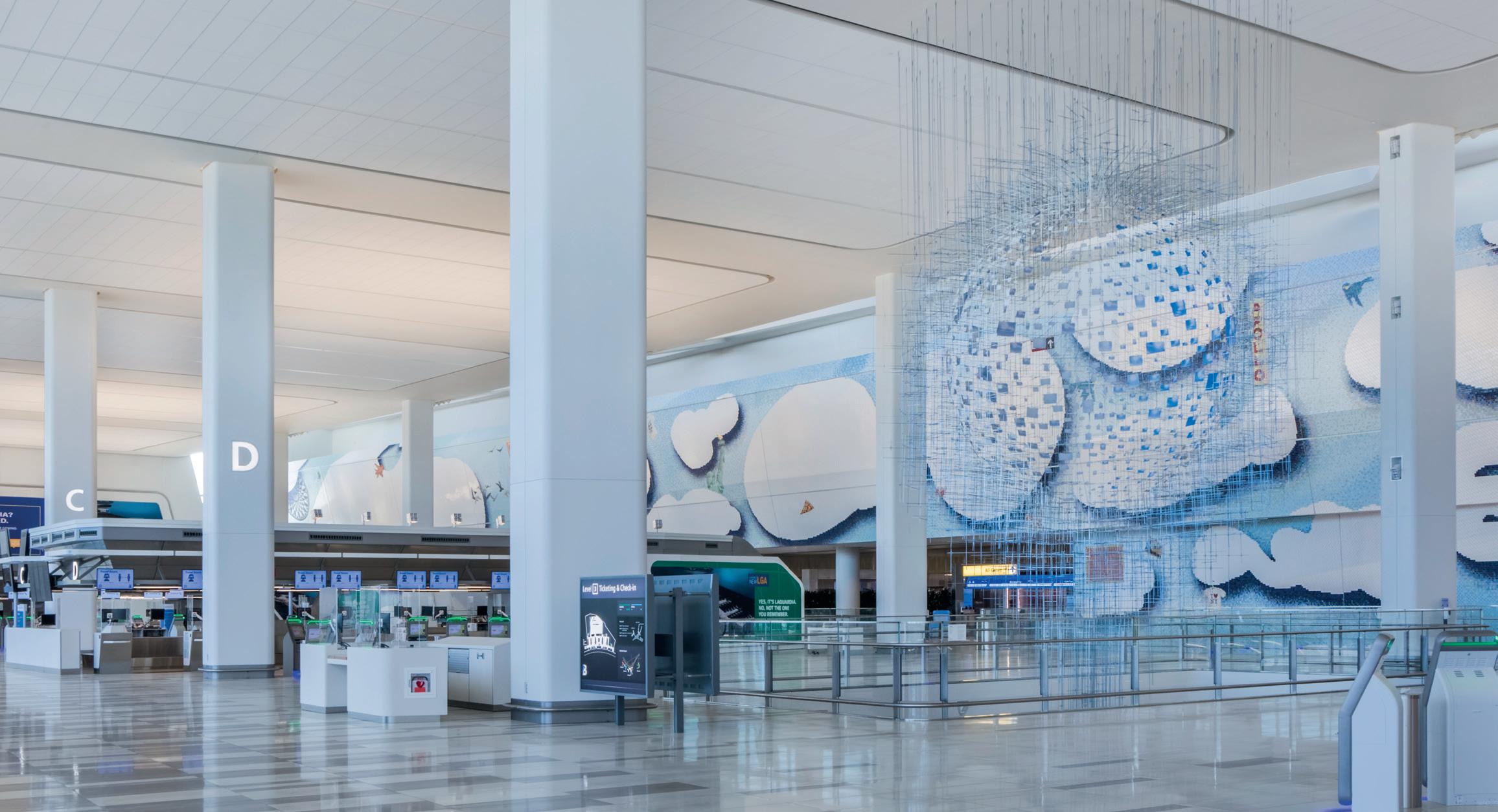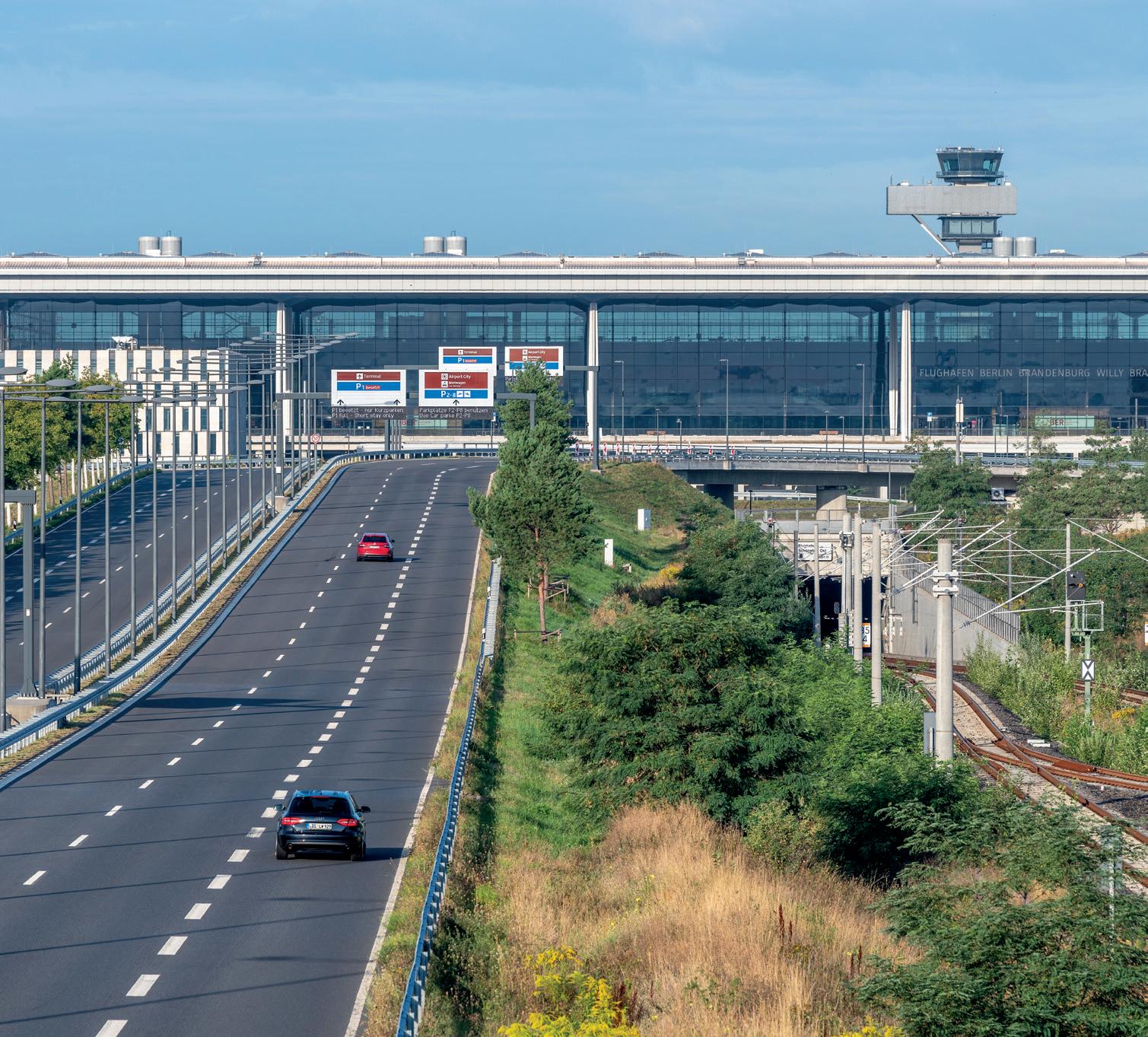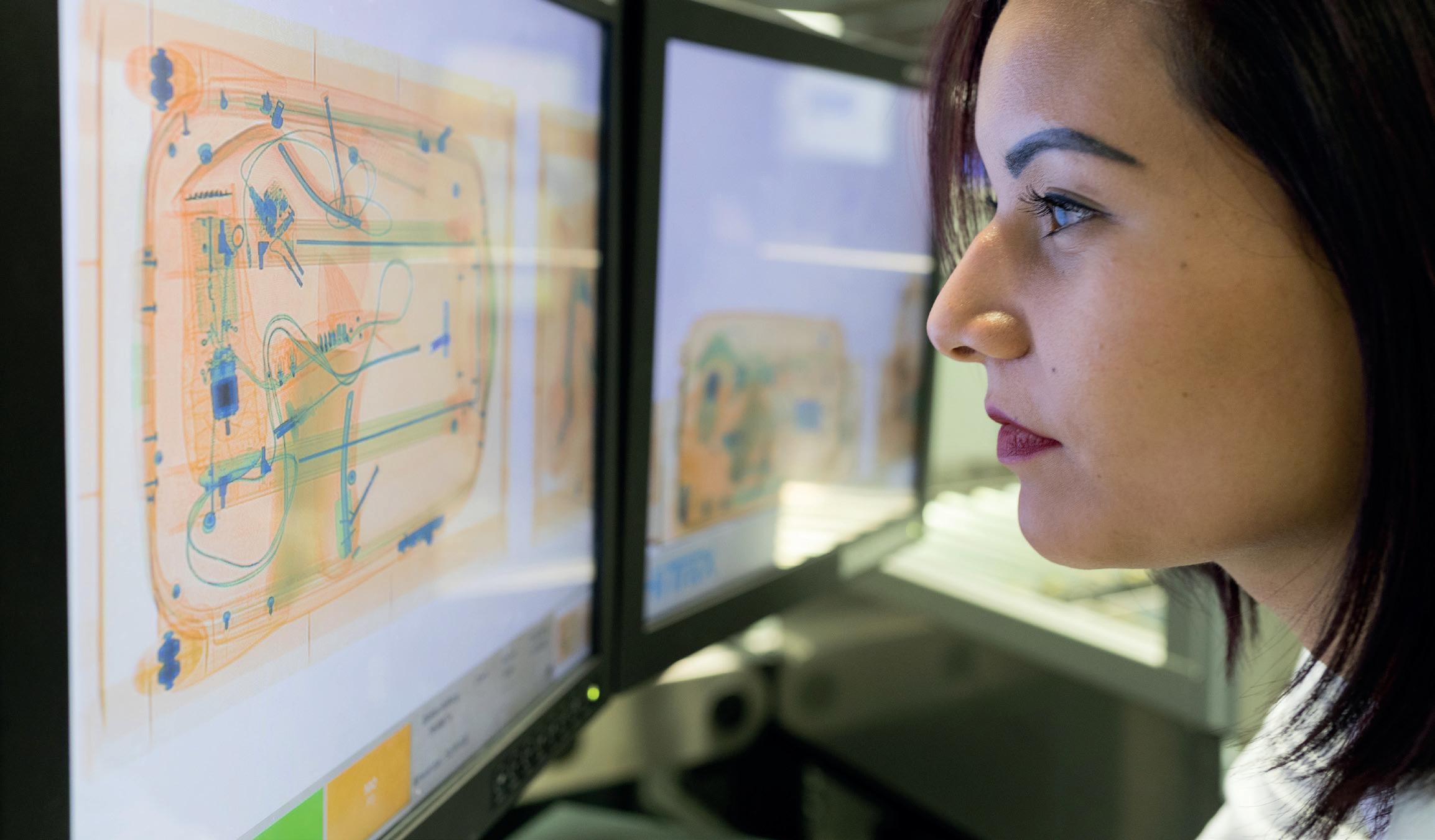
3 minute read
World in motion
Preparing for the new normal: ACI launches Airport Health Accreditation programme to assess airport health measures, writes external relations and special events manager, Bojana Jeremic.
The COVID-19 pandemic has resulted in a global crisis, bringing airports, airlines, and the entire aviation community around the world to a virtual standstill.
Advertisement
As the aviation industry begins to restart and plan for a safe and sustained long-term recovery, many new health measures are being introduced at airports to restore passenger confidence and help travellers feel comfortable again.
ACI World has launched the Airport Health Accreditation programme to assist airports by assessing new health measures and procedures introduced as a result of the COVID-19 pandemic against global standards.
For airports, the main priority and focus is the health and welfare of travellers, staff, and the public.
The accreditation is aligned with the ICAO Council Aviation Restart Task Force (CART) recommendations, the European Union Aviation Safety Agency (EASA) COVID-19 Aviation Health Safety Protocol guidelines, and the ACI Aviation Business Restart and Recovery guidelines.
It enables airports to assess their health measures, as well as demonstrate to passengers, staff, regulators, and governments that they are prioritising health and safety in a measurable manner while also validating their own measures and processes.
Topics covered by the accreditation include cleaning and disinfection, physical distancing (where feasible and practical), staff protection, physical layout, passenger communications and passenger facilities. All passenger areas and processes are considered including: • terminal access and check-in area • security screening • boarding gates and lounges • retail, food, and beverage areas • gate equipment such as boarding bridges • escalators and elevator • border control areas and facilities (in collaboration with authorities), and • baggage claim area and arrivals exit.
The programme is voluntary and open to all ACI member airports of all sizes in all regions.
As airports prepare for the new normal amidst the unprecedented challenges posed by COVID-19, the new AHA programme will enable them to promote best health practices and help align efforts across the industry to harmonise measures, processes, and procedures.
Airports are vital cogs in the aviation ecosystem and aviation will continue to be an important engine of growth, wealth creation and employment, to drive the global sustainable economic recovery from COVID-19, supporting the communities we serve. However airports cannot do it alone – we are all in this together.
Although the response to the COVID-19 crisis has differed across the world, the pandemic has served as a reminder that we are stronger together.
Collaboration, co-operation, and consistency will be key to a sustainable recovery and, at the global level. As we continue to navigate the global challenge of COVID-19, ACI World will continue to work together with industry partners to ensure further alignment on the common denominators – key principles, policies, and procedures – as we embark on the long road to recovery.
The great achievement of this collaboration among the stakeholders is the co-ordination with the International Civil Aviation Organization (ICAO), the International Air Transport Association (IATA), the World Travel and Tourism Council, the United Nations World Tourism Organization, and other global organisations to align efforts to produce consistent guidance.
As we continue to navigate the global challenge of COVID-19, ACI World will continue to work together with industry partners to ensure further alignment on the common denominators – key principles, policies, and procedures – as we embark on the long road to recovery.
Airport Carbon Accreditation numbers continue to grow
Despite today’s tough operating environment, the number of airports joining ACI’s Airport Carbon Accreditation programme continues to rise.
In fact, it was during the worst of the pandemic that the programme passed the milestone of 300 accredited airports worldwide. The global total now stands at 312 carbon accredited airports.
Niclas Svenningsen, manager for global climate action, UNFCCC, said: “Recovery from the pandemic is an opportunity to build back better. This is an industry with an unshakable determination not to just play its part but to make a true difference”.



